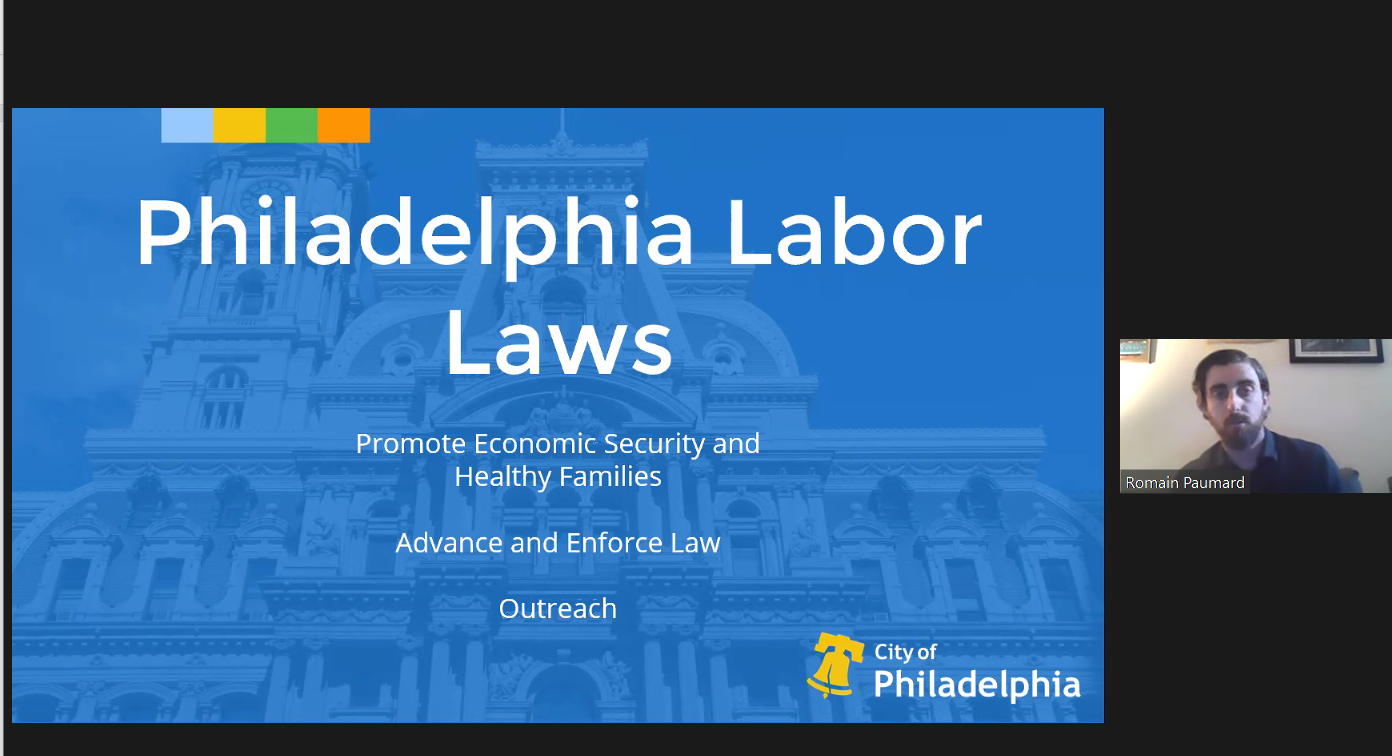Local protections for vulnerable employees have changed in the months since the coronavirus pandemic hit Philly, thanks in part to lobbying from gig and other low-wage workers.
As part of the City of Philadelphia’s 36th annual Minority Enterprise Development Week — the event series offering info for minority entrepreneurs on how to manage employees, obtain government contracts and more — City Engagement Specialist Romain Paumard discussed local labor policies and ways workers can use the laws to protect themselves during a Monday webinar.
First thing to keep in mind: Pennsylvania is an at-will employment state.
“Technically, you can let your employee go for no reason or any reason, with or without notice, as long as it does not violate a law,” he said. “You can let someone go for wearing Nikes if everyone else wears Adidas.”
Some other important takeaways:
Sick leave law
Thanks to a 2015 law, employers are obligated to provide one hour of sick leave for every 40 hours an employee works. That provision has comes with no conditions or requirements. They are expected to track sick leave accrual and notify employees of their rights to sick leave.
The number of employees an employer has determines whether or not sick leave is paid: Employers with 10 or more employees are obligated to provide paid sick leave, while employers with nine or fewer employees are obligated to offer nonpaid sick leave.
Promoting Healthy Families and Workplaces Law expanded
On Sept. 10, Philadelphia’s Promoting Healthy Families and Workplaces law was amended to expand paid sick leave benefits to workers who previously did not receive them under the local law, including independent contractors and gig workers. The following workers operating for at least 40 hours in a year within Philadelphia are now available to receive paid sick leave benefits:
- People working in homes to provide domestic services, such as nannies, home cleaners or caretakers of the sick, convalescent or elderly
- Agency home care workers
- Food delivery workers, including drivers for services like DoorDash
- Transportation workers, including drivers for rideshare services such as Uber and Lyft
- On-call personal healthcare professionals

Refusing work because of public health order violations
The Employee Protections in Connection with COVID-19 Emergency Health Order law protects employees from retaliation when they believe there is a violation of a public health order at work and speak up about it.
Employees can refuse to work at a business because the employee believes there is a violation of a public health order. In order to that, employees must notify the employer of the unsafe condition.
Paumard said that not enforcing mask wearing, not enabling social distancing and not using PPE are all examples of public health order violations.
Retaliation
Paumard explained that retaliation by employers against their employees is illegal. Retaliation includes any of the following things:
- Termination
- Discipline
- Loss of benefits
- Loss of responsibilities
- Also mandating an employee to work “or else,” changing employees schedule, subtracting hours
He asserted that a good relationship between an employer and its employees and consistent documentation can avoid retaliation.
For more resources and information on city labor laws, check out the Philadelphia Office of Labor’s Facebook page and website. You can also contact the Office of Benefits and Wage Compliance hotline at 215-686-0802.






